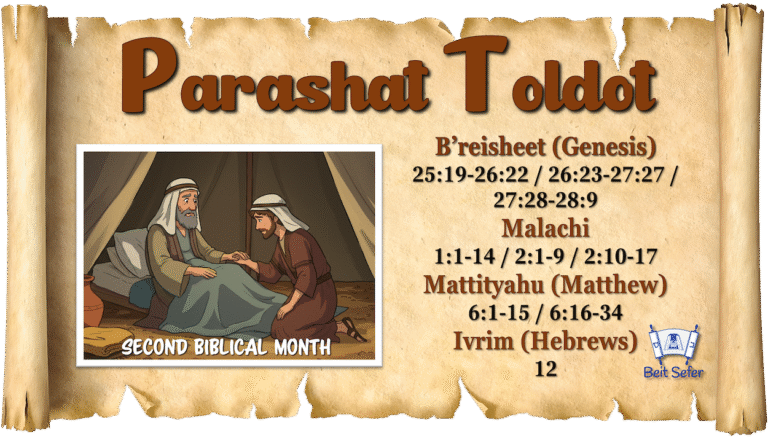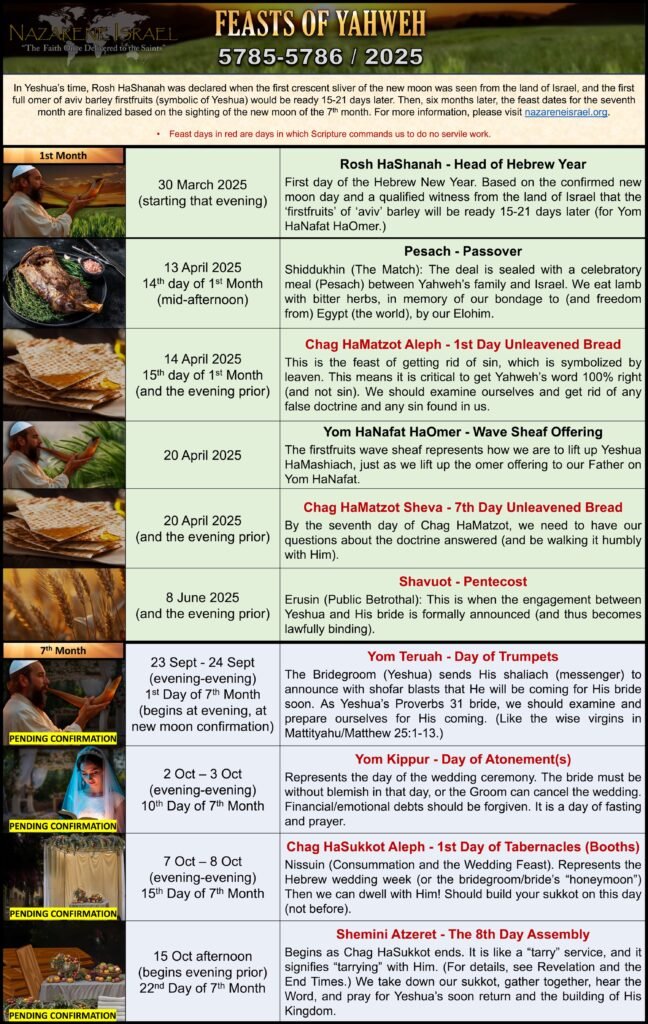Parashat Toldot – Year 3 – Isaac Send Jacob Off.
Shabbat Shalom, Nazarene family.
This week we will study the parashat Toldot, portion of year 3, where we will see how Ya’akov (Jacob) receives his father Isaac’s blessing, though not in the expected way. We will learn that Esau becomes very angry when he finds out what happened, and how this leads to Ya’akov having to go far away. We will read that before he leaves, his father blesses him again and gives him important instructions. We will also see how Esau makes decisions on his own that do not please his family. We will learn that decisions have consequences and that Yahweh continues to work even in the midst of mistakes.
B’reisheet (Genesis) 28:2-4
2 Arise, go to Padan Aram, to the house of Bethuel your mother’s father; and take yourself a wife from there of the daughters of Laban your mother’s brother.
3 “May Elohim Almighty bless you, And make you fruitful and multiply you, That you may be an assembly of peoples;
4 And give you the blessing of Abraham, To you and your descendants with you, That you may inherit the land In which you are a stranger, Which Yahweh Elohim gave to Abraham.”
This week corresponds to the reading of the texts (in bold):
- B’reisheet (Genesis) 25:19-26:22 / 26:23-27:27 / 27:28-28:9
- Malachi 1:1-14 / 2:1-9 / 2:10-17
- Mattityahu (Matthew) 6:1-15 / 6:16-34
- Ivrim (Hebrews) 12
Summary of the weekly study, Year three:
B’reisheet (Genesis) 27:28-28:9
In these verses, we see how Ya’akov receives his father Isaac’s blessing with the help of his mother Rivkah, albeit by deception. Esau, upon realizing this, is filled with anger and desires revenge, which leads Ya’akov to flee. Before leaving, Isaac reiterates the blessing and instructs him not to take a wife from the Canaanites. Meanwhile, Esau, noticing his parents’ disapproval, decides to marry someone from Ishmael’s family. In this passage, we learn that hasty decisions and lack of communication can cause pain, but Yahweh continues to guide His plan.
Malachi 2:10-17
In these verses, we will see how the prophet Malachi confronts the people for not being faithful either to Yahweh or to each other. We will learn that many were breaking important promises, such as the marriage covenant, and that this deeply grieves Yahweh. We will read that He does not take pleasure in deceit or betrayal, and that He looks carefully at how we treat others. In this passage, we learn that faithfulness is very precious to Yahweh, both in our relationships and in our worship, and that He desires us to live with integrity and respect for His ways.
Ivrim (Hebrews) 12
In these verses, we will see how we are encouraged to run with patience the race of faith, with our eyes fixed on Yeshua, who endured so much out of love. We will learn that Yahweh, as a good Father, corrects those he loves, not to punish them but to form a firm and holy character. We will also read warnings against bitterness and spiritual indifference, recalling examples from the past. In this passage, we learn that the life of faith requires endurance, focus and a heart willing to be molded by Yahweh, knowing that all is for our eternal good.
–
Enjoy this fun activity with the whole family. Inside you will find development questions for the three weekly sections (Torah, Haftarah and Brit Chadasha). While the older ones discuss the questions and their answers, the younger ones can color the picture related to the teaching, solve a maze, find the 7 differences and much more. We encourage you to do it week by week and instill in your children the habit of studying Yahweh’s word as a family.
We hope you and especially your sons and daughters enjoy this effort. For it is through the study of the Scriptures that we can come to understand the love and care that Yahweh has always had for us. And also to perceive that He has been taking care of even the smallest detail, so that we can take care and enjoy all that He gives us. That is why it is so important that our children learn and grow up knowing that they are loved by the Creator of all that exists.
Shalom.
To view the Tanach studies, click here
To view the Brit Chadasha studies, click here




